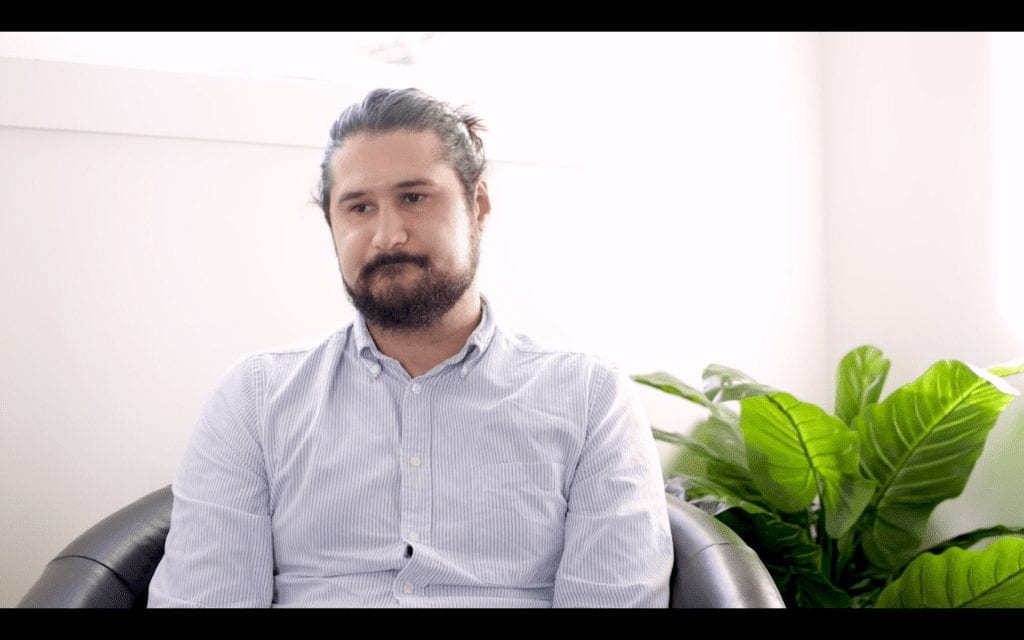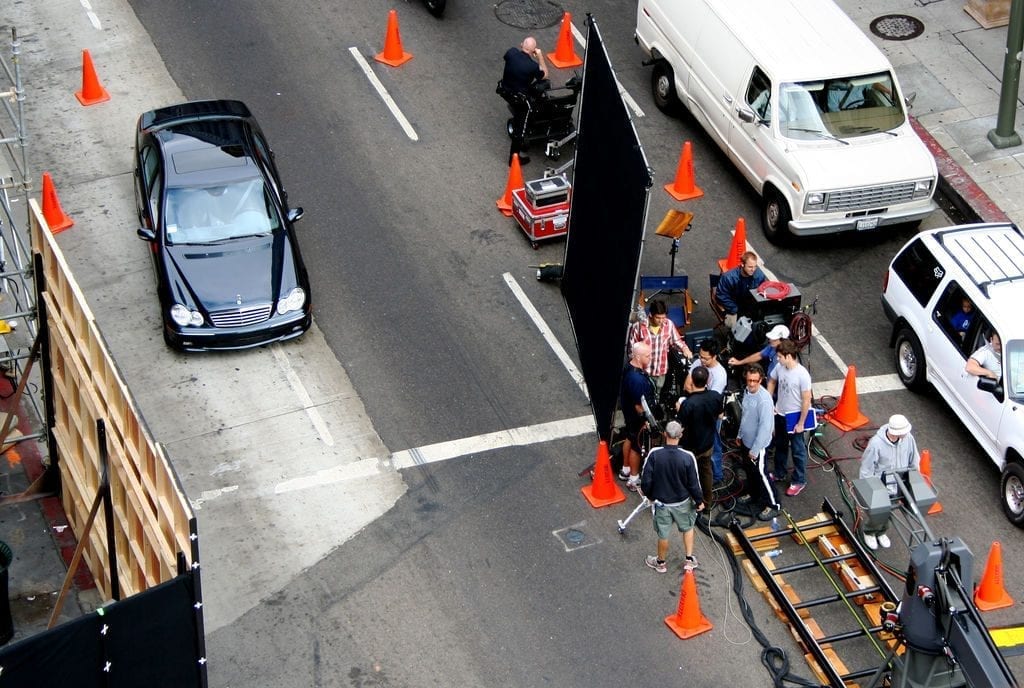Watch: Director Mike Thompson tells us why producers don’t care about your logline and why you should ignore them
“I had a producer asking me about international sales, and he hadn’t even heard the logline yet.”

For our third Community Spotlight, we reached out to director Mike Thompson, one of our first filmmakers to upload his director’s reel for free to our new Auteurs page. Thompson lives in Louisville, Kentucky and shares our penchant for accessible filmmaking in the digital world. And like us, he believes in the power of the logline. If you have a logline that can carry a story, submit it to us for a chance to get funding for your film.
Thompson wants aspiring filmmakers to “just make things” and not “tie [themselves] to one particular area.” Make music videos, make commercials, make shorts. You’ll learn so much about working with actors and directing a crew that way, even if it’s not the feature project you dream about directing. He says that “we live in a really cool time period where you have a camera in your back pocket at all times,” echoing our earlier post about how it’s unnecessary to shoot in 4K for a lot of projects.

With this proliferation of accessible filmmaking technology comes an influx of new auteurs emerging in the film community. Thompson says he feels like “on a daily basis [he] discovers someone new.” I’m sure many of us have lists on our smartphones of new directors and new films we want to check out, and with streaming services like Filmstruck, MUBI, and IndieFlix, watching independent film is becoming even easier.
Thompson makes an interesting point when talking about these auteurs, putting names like Lynne Ramsey (shoutout for #womeninfilm!) in the same discussion as the filmmakers he calls “the greats,” such as John Cassavetes. He says that “they use the same tools that every director does. We all have cranes, we all have dollies, we all have Steadicams, we all have all these other things available to us, and yet, whenever you watch one of their projects, you know from the opening shot, from the first thing, that that’s whose project you’re watching. I think that’s an incredible feat.”

Now, every director may *not* have access to all of that equipment listed, especially when starting out on an iPhone. But—the point Thompson makes that resonates with me is that no matter what tools filmmakers have at their disposal, the greats have figured out a way to leave their mark. This echoes the commentary from Tim Viola, who recommends watching these great directors’ first films—often handheld with a low budget and small crew. Christopher Nolan’s Following comes to mind. Or the entire French New Wave movement. What happened to that? When did raw become un-cool? Someone with a background in cinema studies, please tell me.
No matter the equipment or the crew, the most important thing needed to carry a film starts with the script. A good idea. A logline with enough substance that it can carry a story. Thompson tells us about some frustrations he’s had when trying to raise money for projects, and how a lot of producers don’t care about story. “I had a producer asking me about international sales, and he hadn’t even heard the logline yet.”
That doesn’t make sense to us. We direct because of story. Not because of foreign distribution pre-sales.
Just like Tim Viola, Thompson values The Film Fund’s simplicity. “Submit me the logline and what you’re going to use the money for? I think that’s about as easy as it gets.”
Got a logline that can carry a short narrative or documentary film? Submit it to one of our funding contests for a chance to get up to $10,000 to produce it.